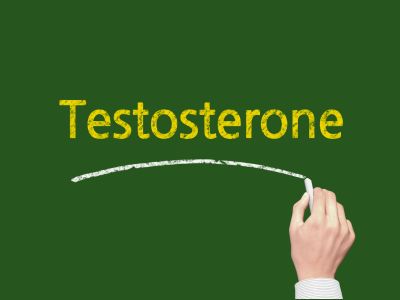How Medical Experts Help Manage Low Testosterone Symptoms
There are a lot of men all around the globe who are dealing with low testosterone issues, which is also called hypogonadism. This affects a significant number of men, leading to a variety of physical, emotional, and mental health challenges. Medical experts play a crucial role in diagnosing and managing the symptoms of low testosterone, helping men regain their vitality and improve their quality of life. This article explores how medical professionals can assist in navigating this complex condition with the help of their approach to an efficient testosterone replacement therapy (TRT).
Why Are Medical Experts Important for Your Assistance in Low Testosterone?
One of the primary ways medical experts help in cases of low testosterone in Kennewick is through accurate diagnosis. Symptoms of low testosterone can be vague and may overlap with other conditions, which makes it essential to consult with a healthcare professional for proper evaluation. A medical expert will conduct a comprehensive assessment, including:
- Detailed Symptom Review: The doctor will inquire about specific symptoms such as fatigue, decreased libido, erectile dysfunction, loss of muscle mass, increased body fat, mood changes, and sleep disturbances.
- Medical History: Gathering information about the patient’s medical history, including past illnesses, surgeries, medications, and family history of hormonal imbalances, helps identify potential contributing factors.
- Physical Examination: A physical exam can reveal signs of low testosterone, such as reduced muscle mass, increased abdominal fat, and decreased body hair.
- Advanced Testing: Cutting-edge lab work is crucial for accurately assessing testosterone levels. This includes measuring total testosterone, free testosterone, and other relevant hormones to determine the extent of the deficiency.
How can Personalized Treatment Plans be Beneficial?
Medical experts develop personalized treatment plans tailored to the individual’s needs and preferences based on the diagnostic results. They are highly focused on taking a customized approach, which can include:
- Testosterone Replacement Therapy (TRT): TRT involves supplementing the body with testosterone to restore optimal levels. This can be administered through various methods, including injections, topical creams, gels, and patches. TRT can help improve muscle mass, bone density, energy levels, libido, mood, and cognitive function.
- Lifestyle Adjustments: Medical experts guide lifestyle changes that can naturally boost testosterone levels. This includes:
- Prioritizing Sleep: Aim for 7-8 hours of quality sleep each night, as sleep deprivation can significantly lower testosterone levels.
- Proper Diet: Consume a balanced diet rich in vitamins and minerals essential for testosterone production, such as Vitamin D, magnesium, and zinc. Avoid overeating; instead, increase healthy fats and protein intake.
- Weight Training: Engaging in regular weightlifting exercises, mainly compound movements like squats, deadlifts, and rows, to stimulate testosterone production.
- Weight Loss: Reducing excess body weight, as fat cells can convert testosterone into estrogen, further lowering testosterone levels.
- Stress Management: Implementing stress-reduction techniques to lower cortisol levels, which can interfere with testosterone production.
- Limiting Alcohol and Avoiding Drug Abuse: Reducing alcohol consumption and avoiding drug use, as both can negatively impact testosterone levels.
- Reviewing Medications: Assessing the impact of current medications on testosterone levels and exploring alternative options if necessary.
Ongoing Support and Monitoring
Managing low testosterone is an ongoing process that requires regular monitoring and support from medical experts. This includes:
- Regular Follow-Up Appointments: Schedule regular check-ups to assess treatment effectiveness, monitor testosterone levels, and adjust the treatment plan.
- Symptom Management: Guiding on managing any side effects of TRT and addressing any new or persistent symptoms.
- Lifestyle Counseling: Offering ongoing support and advice on maintaining a healthy lifestyle to optimize testosterone levels and overall well-being.
Addressing Specific Symptoms
Medical experts help manage specific symptoms associated with low testosterone, such as:
Decreased Energy and Fatigue: TRT can significantly improve energy levels and reduce fatigue, allowing men to engage more actively in daily activities.
- Reduced Muscle Mass and Strength: Testosterone is crucial for muscle growth and maintenance. TRT and resistance training can help increase muscle mass and strength.
- Increased Body Fat: TRT can help reduce body fat, particularly around the midsection, by promoting a more favorable metabolic profile.
- Low Libido and Sexual Performance Issues: Testosterone plays a vital role in sexual function. TRT can restore libido, improve erectile function, and enhance sexual satisfaction.
- Mood Swings, Irritability, and Depression: Testosterone influences mood regulation. TRT can help stabilize mood, reduce irritability, and alleviate symptoms of depression.
- Trouble Sleeping and Brain Fog: Testosterone affects sleep quality and cognitive function. TRT can improve sleep patterns and enhance mental clarity.
Conclusion
The medical experts are instrumental in helping men manage the symptoms of low testosterone in Kennewick by providing accurate diagnoses, personalized treatment plans, and ongoing support. By combining medical interventions with lifestyle adjustments, men can effectively address low testosterone and reclaim their vitality, confidence, and overall well-being.
Seeking guidance from experienced professionals like Michael Turner, M.D., ensures that individuals receive the most effective, safe, and tailored care possible. With the right approach, men can navigate the challenges of low testosterone and achieve a healthier, more balanced life.
